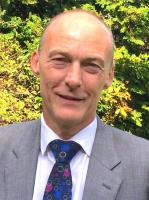Time Stamped Show Notes:
19s: Peter Campbell is an orthopaedic surgeon based in York who sees private and NHs patients. He also does some life coaching. I have interviewed Peter for another podcast in our Harrogate podcast.
51s: What is it like for you seeing a patient in a legal context? They often don’t know what to expect so helping them to understand that is really important. Our role for someone who has had a personal injury claim is around supporting the legal process, to be an expert for the court. The clients will experience a comprehensive discussion around the circumstances of the accident, the short and long-term impact and a conversation about past medical history and issues prior to the accident. It’s not a medical consultation to treat them but the specialist may recommend to the court, various treatment options, if appropriate.
3mins 14s: Predicting the future is an impossible task – how do you work out what the future would be with the prognosis? We can make an estimate on the balance of probabilities. We look at the type of injury, whether there was structural damage, the rate of recovery and their health before the accident. We are all getting older and all of us may develop conditions as a part of the aging process. We need to tease out the impact of the accident on that natural aging process so we can provide some clarity between the two. It’s not an exact science and there may be spectrum of opinion.
4mins 45s: I train medico-legal experts. The medical expert’s job is to the court. Would they give this answer if the other side was paying them? We understand the dilemma, often the adversarial process can get in the way of good outcomes. Our role is to be an impartial advocate for the court. We need to be clear that any conclusions we draw are based on sound evidence irrespective of who is instructing us. We take a factual account of the circumstances and provide an opinion to the court which can help the court decide which route they want to go down.
7mins 8s: Sometimes a client has no symptoms before the accident but after, they have all these symptoms and a medical expert might say they had degeneration. How do you describe to someone who was asymptomatic that they were going to be like this anyway? Symptoms develop not just because of accidents, for example, back pain. If it’s because of their injury, we could say on the balance of probability that they are likely to have developed some of those symptoms anyway. The accident has accelerated or brought forward those symptoms earlier than they would’ve occurred. That may not be the same if they had broken their ankle, for example. That would be because of the accident, not just because of their age.
9mins 26s: What is your job regarding clinical negligence? The circumstances are different, the client is bringing a claim against an individual. I would need to make sure there is no conflict of interest if they are bringing a claim against my hospital or a colleague, for example. I am still there to provide evidence to the court in an impartial way. My level of expertise is around the incident and the impact but also the care they have received and if that was a consistent standard of care. What was the consequence of that, did that failure of care lead to the symptoms that the client is experiencing?
11mins 30s: To bring a successful claim, the standard of care has to be pretty atrocious. There were only 17,400 claims last year. Are there any places your colleagues often make errors? I agree that medical negligence incidents are very low considering the interactions. I would say that the doctors etc are doing a good job. I wouldn’t say that it has to be a very low standard of care for that to be recognised and clients to be recompensed for that. The key thing is communication, most patients are unhappy as they haven’t been listened to or had a clear explanation about what has happened. There is a difference between a patient experiencing a complication and a patient experiencing sub-standard care. So, communication and fully informed consent are the two key areas that I try to instill in my trainees and the doctors that I’ve trained.
15mins 38s: It’s easier to bring a personal injury claim than a clinical negligence claim against a doctor they have trusted. I think doctors being honest with their patients reduces the claims.
Further Listening
More Clinical Negligence podcasts.




